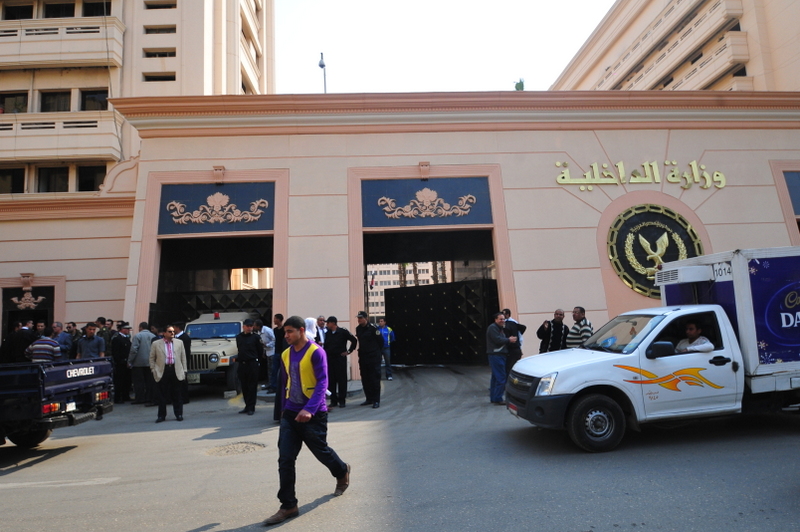Four alleged members of Crisis Cell, affiliated to the outlawed Muslim Brotherhood group, pleaded guilty to charges directed to them by National Security agents, according to a video statement by the Interior Ministry published on Saturday.
The cell is led by Muslim Brotherhood members abroad. The Crisis Cell members are accused of plotting to harm the country’s economic image, and seeking to create a “pessimistic atmosphere” by fabricating and provoking crises, in order to claim that the state had failed to implement development plans.
The first member that appears in the video, Shaaban Gamil El-Sayed, joined the Brotherhood in 1989, and said that the Crisis Cell is led by a high committee that prepares the necessary tools to implement the group’s objectives, summarised in the previously mentioned charges.
The cell also has a representative in every governorate who informs the members about the situation in the area, so that all provinces are aligned in activating crises.
He added that their work is divided into two parts—creating a crisis and activating it.
The second member, Mohamed Mostafa Kamal, joined the Brotherhood in 1993, and said that he was part of the group responsible for highlighting controversial topics in the media, such as the strikes by workers, and PhD and Master’s degree holders.
Commenting on the legal punishment for such charges, lawyer Mokhtar Mounir from the Association of Freedom of Thought and Expression (AFTE) told Daily News Egypt: ”The charges leveled against the members are not included in the regulations law or any other law, as it is not a punishable crime.”
The charges were specified according to investigations conducted by National Security agents, not by the prosecution, which does not condemn the defendants, the lawyer explained. He continued explaining: “those who shot the video should be held accountable, as the members were obviously pressured into confessing on-camera”.
The lawyer concluded that the members have the right to appoint a lawyer, and he expects their families to do so.
The accusations directed against the alleged members included the use of media to distort the state’s image and ability to solve crises. However, this contradicts with what has been happening in the Egyptian media, which bans opposing groups or figures from appearing on-screen, and highly supports and defends the regime’s performance and policies.
President Abdel Fattah Al-Sisi had previously warned in his speech during the first anniversary of the New Suez Canal that some groups are attempting to discredit the value of national projects and demoralise the population.


